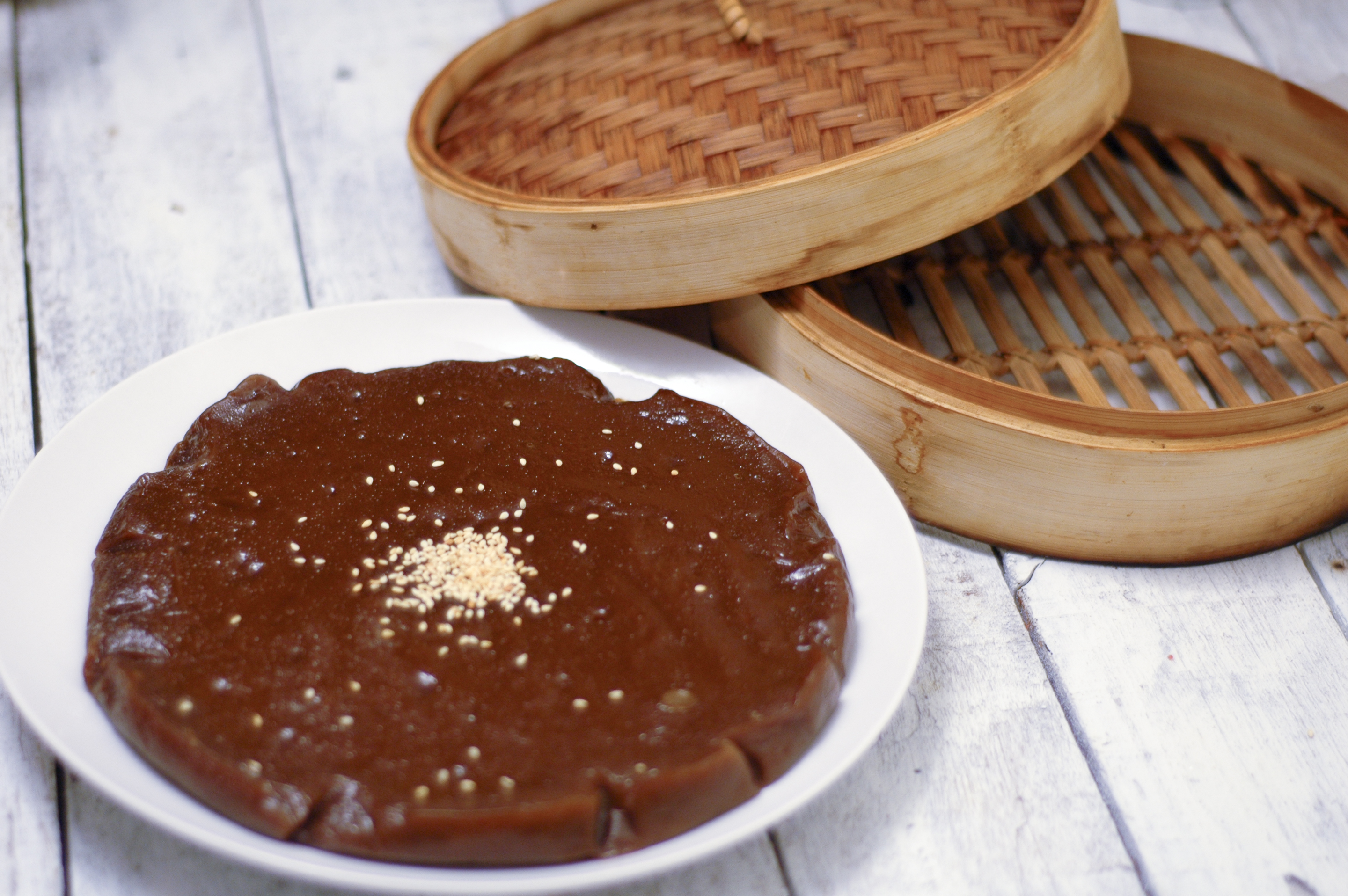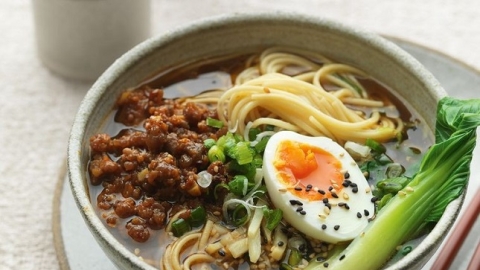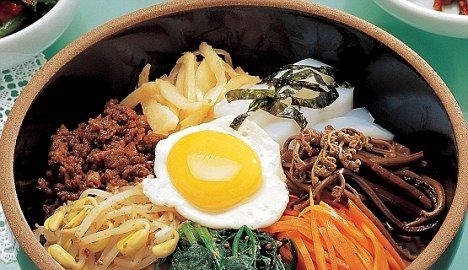Fish - A symbol of prosperity
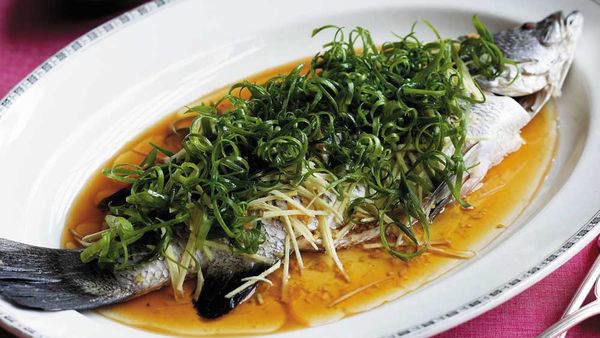
In Chinese, the pronunciation of "fish" (鱼 Yú / yoo) sounds similar to the word...'redundant'Fish is a traditional Chinese New Year dish. Chinese people always want to have a surplus at the end of the year, because they believe that if they can save something at the end of the year, they can earn more in the coming year.
The types of fish chosen for New Year's dinner are based on auspicious homophones such as'striped carp'(鲫鱼 jìyú / jee-yoo /) sounds like the word'good luck' (jí / jee) in Chinese;'mud carp'(鲤鱼 lǐyú / lee-yoo /) is pronounced like the word'present'(礼 lǐ / lee);'catfish'(鱼 niányú / nyen-yoo) sounds similar to 年 余 (nián yú), which means...'annual surplus'.
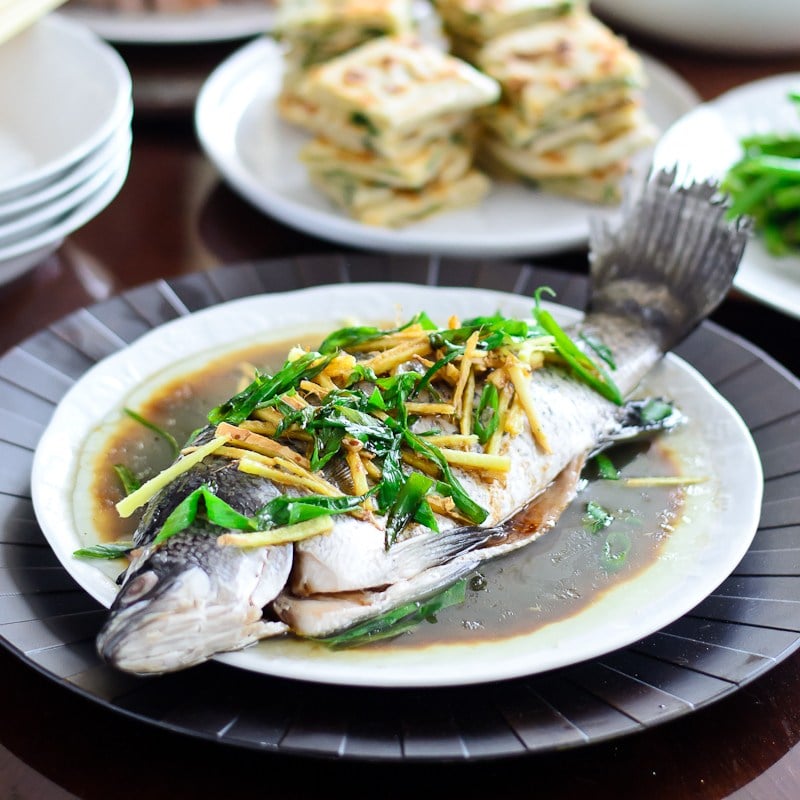
Things to note when eating:
- The Chinese typically eat two fish, one on New Year's Eve and one on New Year's Day. If there is only one fish, they eat the body on New Year's Eve and save the head and tail to eat on New Year's Day. The fish should also be the last dish left on the table. All of this symbolizes the hope that the year will begin and end with prosperity.
- The fish head should be placed facing the honored guest or elder, representing respect. Diners can only enjoy the fish after the person opposite the head has eaten first. The fish should not be moved. The two people facing the head and tail of the fish should drink together, as this is considered to bring good luck.
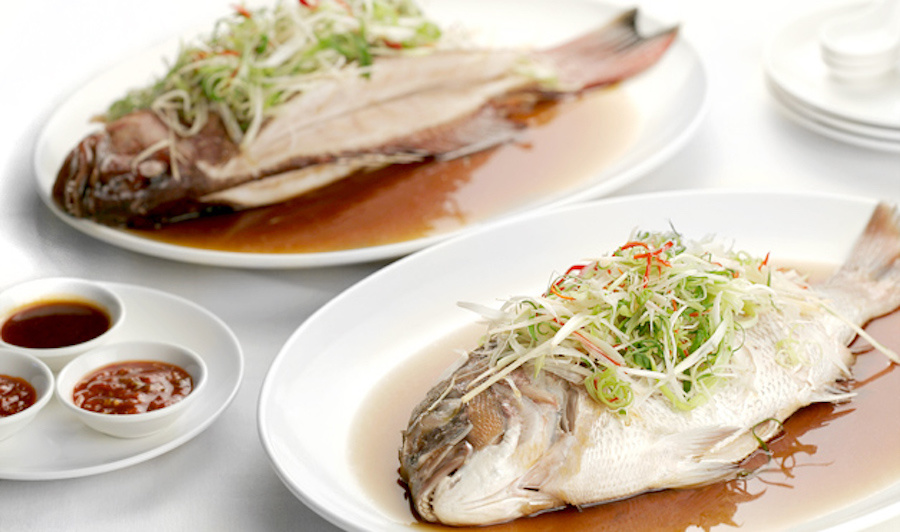
Lucky sayings associated with eating fish:
- 年年 有余 (Niánnián yǒu yú / nyen-nyen yo yoo): May you always have more than you need!
- 鱼跃龙门 (Yú yuè linhmén / yoo ywair long-mnn):'A fish leaps through the dragon gate', implying a wish for success and passing the competitive exam.
Chinese dumplings - A symbol of wealth
With a history spanning over 1,800 years, dumplings (饺子 Jiǎozi / jyaoww-dzrr) are a classic Chinese dish. They are traditionally eaten on Chinese New Year's Eve, most popular in northern China. Dumplings are often shaped like Chinese silver ingots. Legend says that the more dumplings you eat during the New Year celebration, the more money you will earn in the coming year.
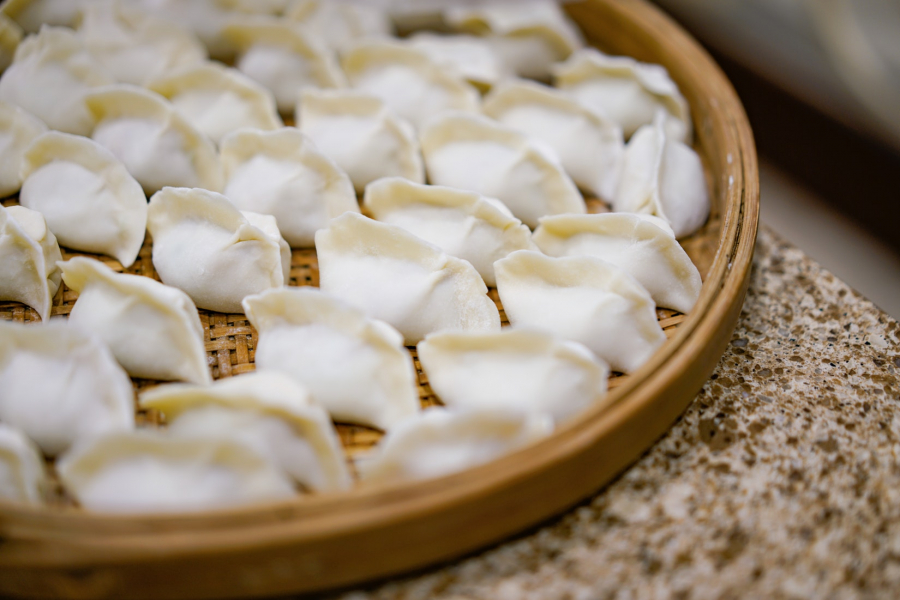
Dumplings typically consist of minced meat and finely chopped vegetables wrapped in a thin, elastic dough wrapper. Common fillings include minced pork, diced shrimp, fish, ground chicken, beef, and vegetables. They can be cooked by boiling, steaming, frying, or baking.
Chinese people avoid eating Chinese pickled vegetables (酸菜 suāncài / swann-tseye) with dumplings in the spring, as it symbolizes a poor and difficult future. On New Year's Eve, people usually eat dumplings with cabbage and radish, implying that the eater's skin will become fairer and their mood will be lighter.
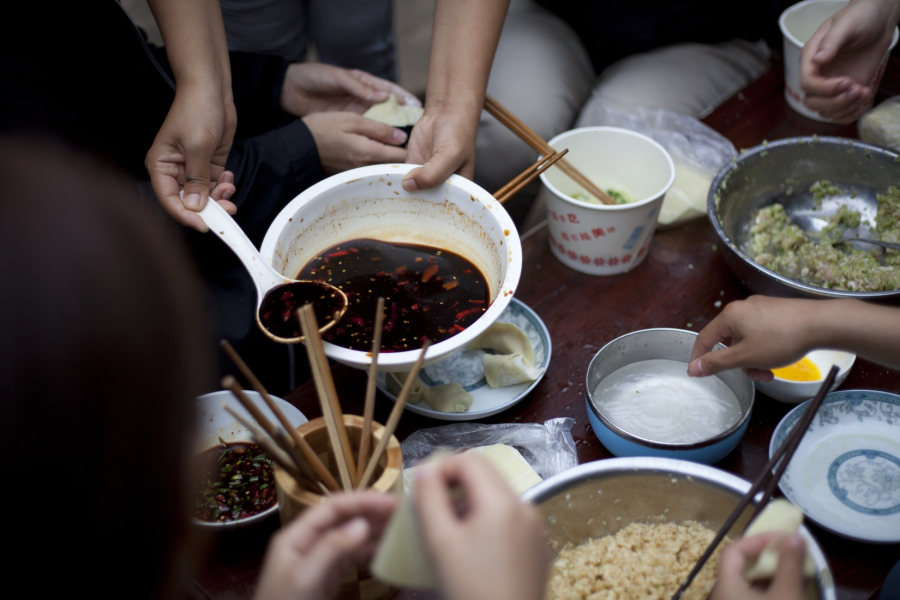
Notes on making lucky dumplings:
- When making dumplings, there should be some clear and beautiful folds. If you make them too flat, it will symbolize poverty.
Some Chinese people place a white thread inside a dumpling, and the person who eats it is believed to live a long life. Sometimes a coin is placed inside a dumpling, and the person who eats it is said to become rich.
- Dumplings should be arranged in rows instead of circles, because the circle of dumplings is said to represent a person's life, which will always follow a circular path, always going in circles.
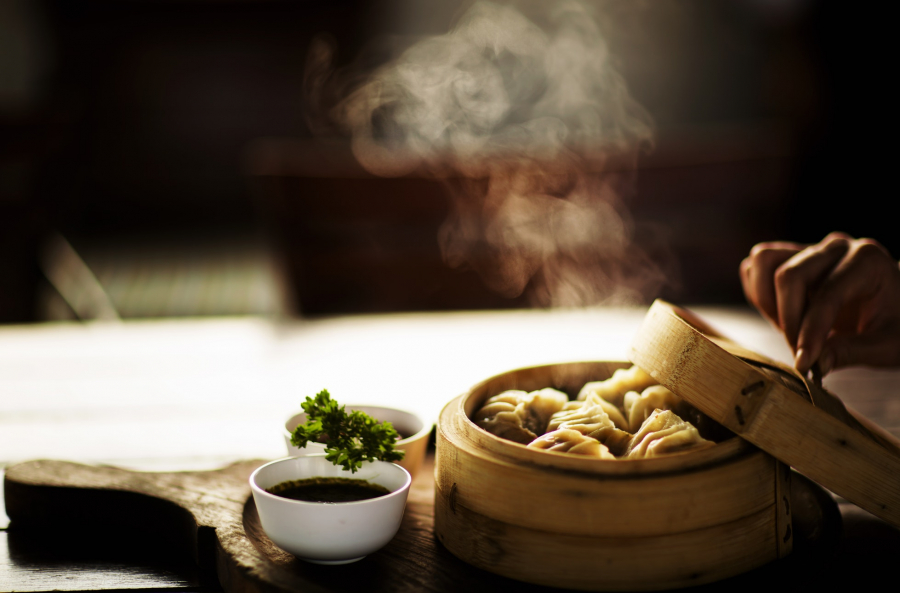
Lucky sayings when eating dumplings:
- Zhāo cái jìn bǎo (jaoww tseye jin baoww): 'Bringing wealth and treasure'
Spring rolls - Rich and prosperous
Spring rolls (春卷 Chūnjuǎn / chwnn-jwen) are a particularly popular dish in eastern China: Jiangxi, Jiangsu, Shanghai, Fujian, Guangzhou, Shenzhen, Hong Kong, etc.
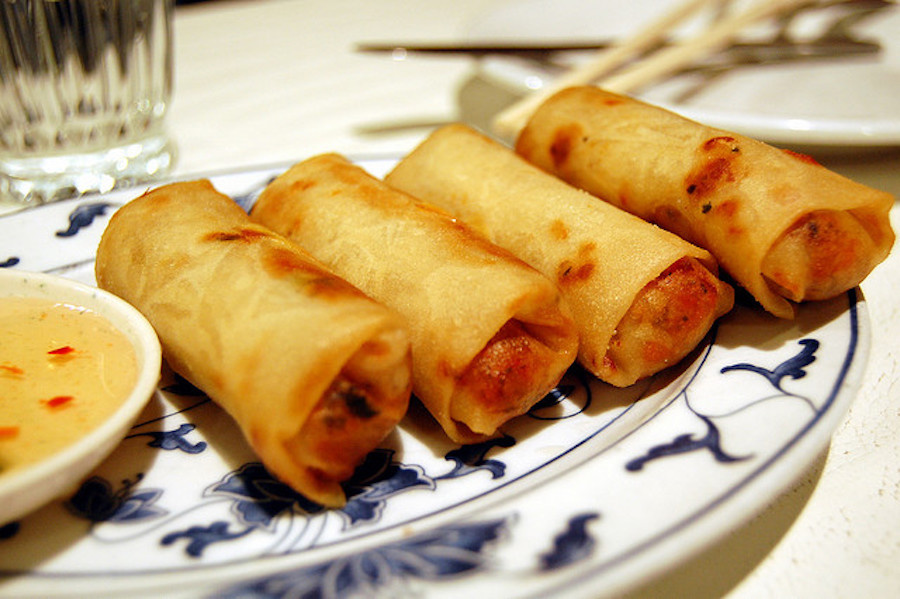
Spring rolls are cylindrical rolls containing a filling of vegetables, meat, or possibly sweet fillings. The filling is wrapped in thin dough paper, then fried until golden brown.
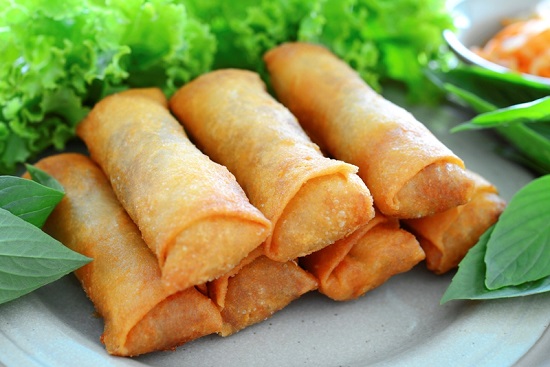
Lucky sayings when eating spring rolls:
- 黄金万两 (Hwung-jin wan-lyang): 'One ton of gold' (because the spring rolls resemble gold bars) - a wish for prosperity.
Sticky rice cakes - higher income or position
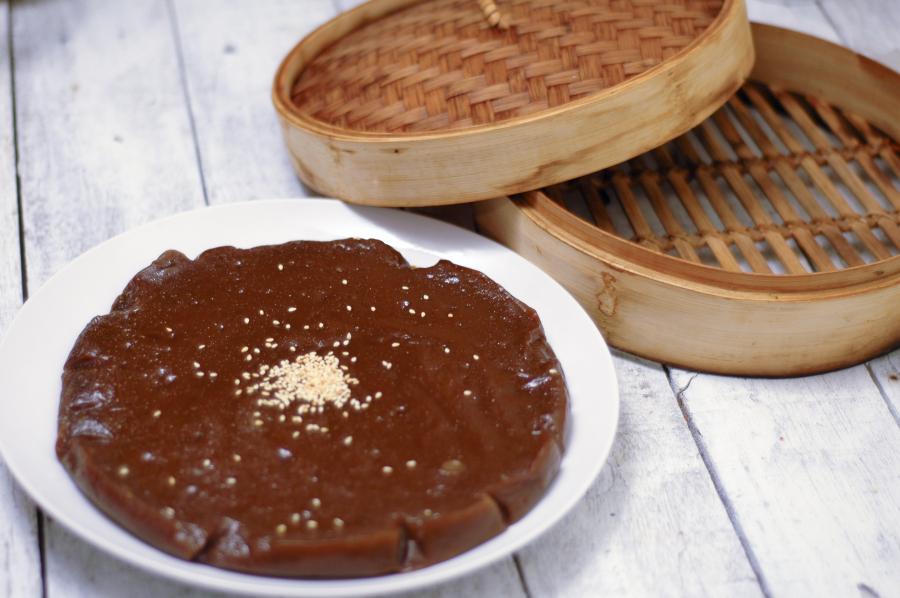
Sticky rice cake (年糕 Niángāo / nyen-gaoww) is a traditional Chinese New Year dish. In Chinese, sticky rice cake is pronounced like..."increasing gradually year by year"In the minds of the Chinese people, this signifies an improvement in income or job position. The main ingredients of the dish are glutinous rice, sugar, chestnuts, Chinese dates, and lotus leaves.
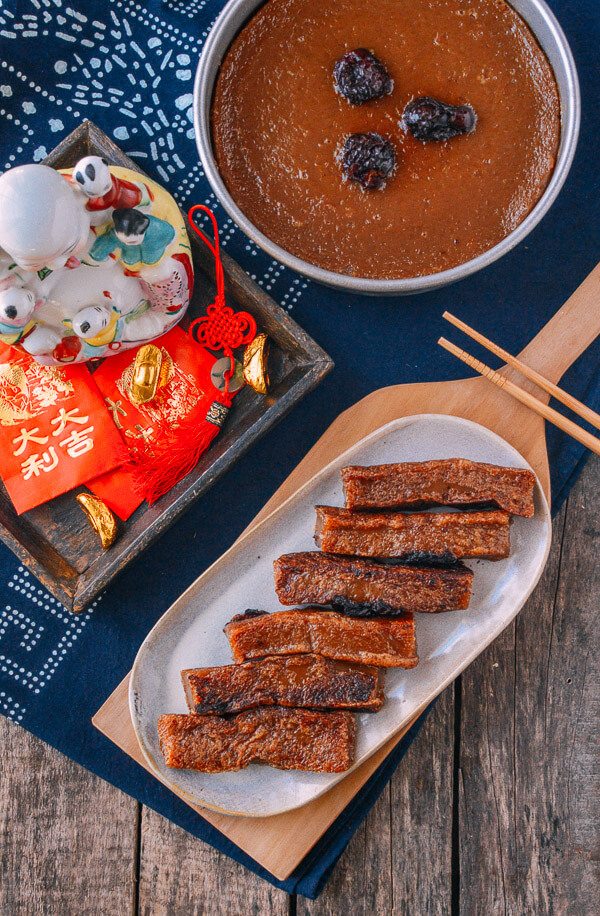
Lucky sayings associated with eating sticky rice cakes:
- 年年 (niánnián gāo / nyen-nyen gaoww): 'Increasing year after year', can imply the height of children, success in business, better academic performance, career advancement, etc.
Rice dumplings in sweet soup - Family reunion
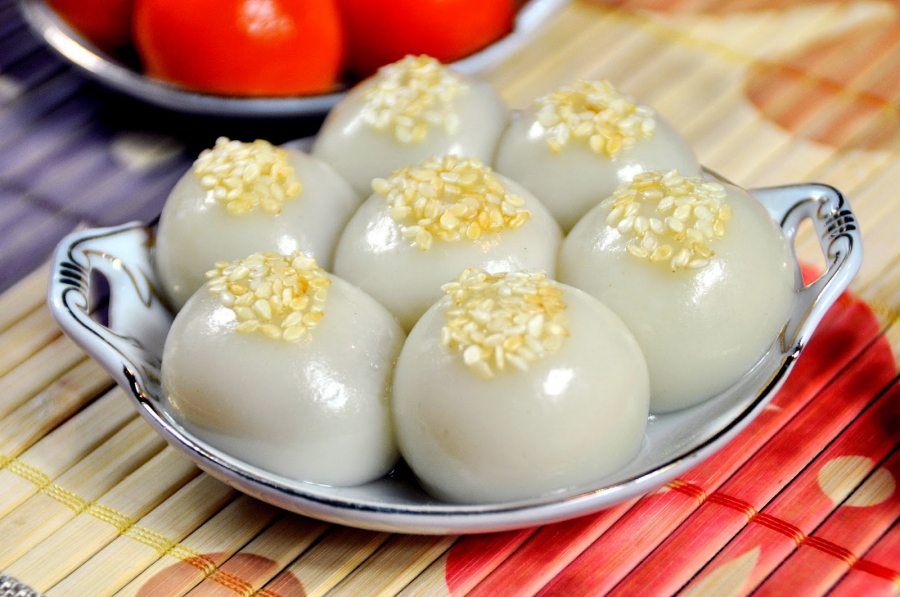
Tangyuan (汤圆 Tāngyuán / tung-ywen) is a staple food during China's annual Lantern Festival. However, in southern China, it's commonly eaten throughout the Spring Festival. The pronunciation and round shape of the dish are associated with reunion and togetherness, which is why it's so popular among Chinese people during the New Year celebrations.
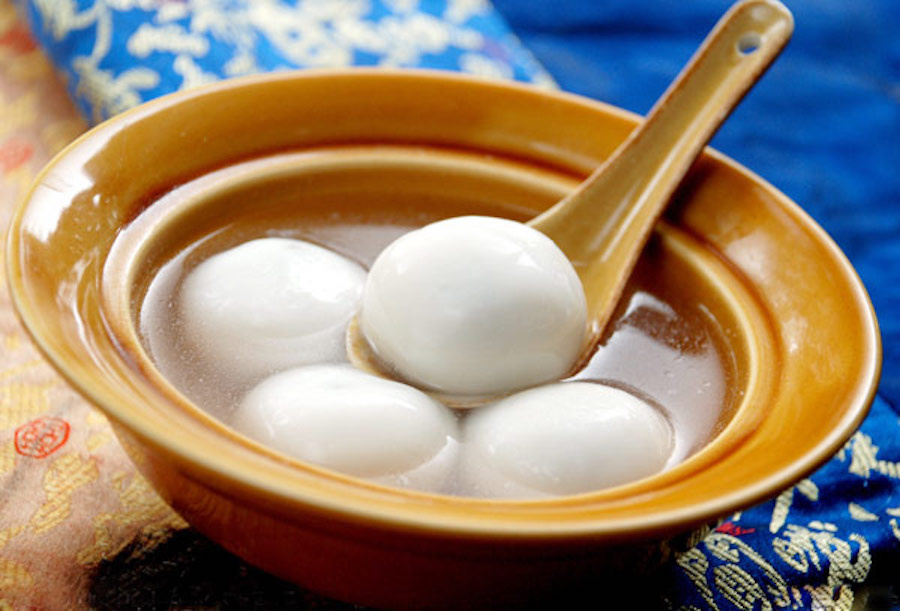
Lucky sayings when eating glutinous rice dumplings:
- 团团 圆圆 (Tuántuán yuányuán / twann-twann ywen-ywen): 'Happy reunion'
Longevity Noodles - Happiness and Longevity
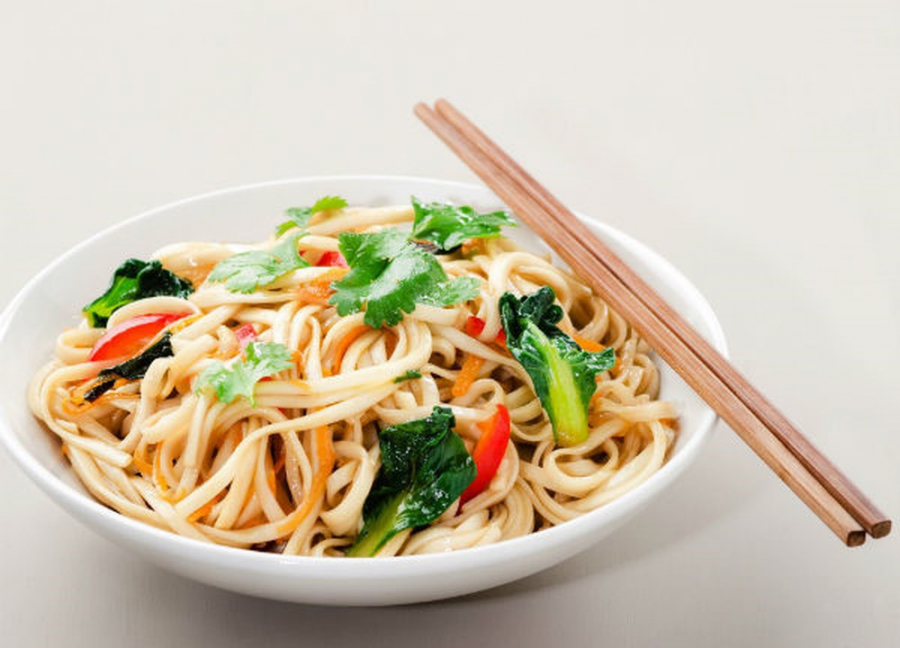
Longevity noodles (ángáng Chángshòu Miàn / chung-show myen) symbolize a wish for a long life. They are longer than regular noodles and are not cut; they are often stir-fried and served on a plate, or blanched and cooked in broth.
Lucky fruits - Symbolizing fulfillment and wealth
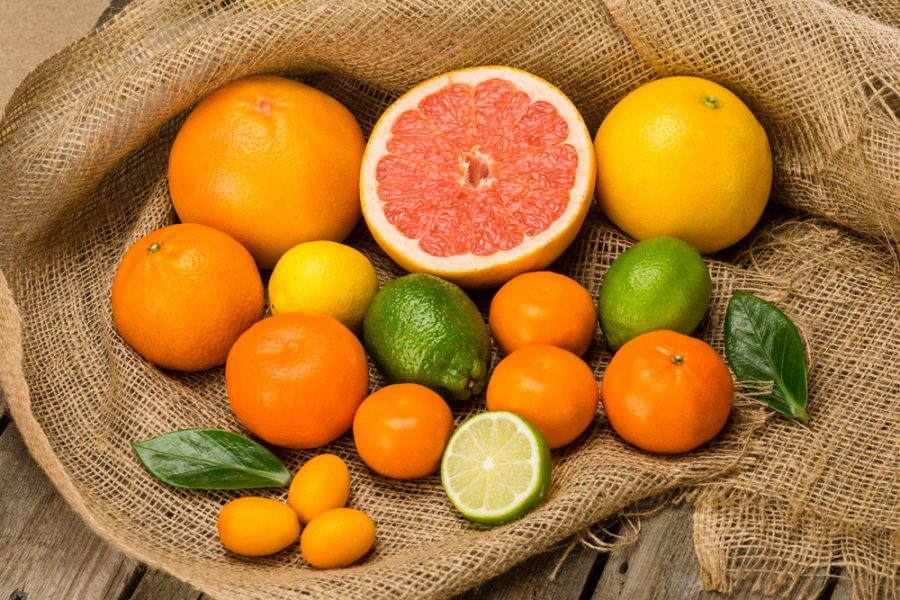
Some of the fruits eaten during the Chinese New Year are tangerines, oranges, and pomelos. They are chosen because of their round shape and "yellow" color, symbolizing abundance and wealth.
In Chinese, the color orange is pronounced (chéng / chnng /), which sounds similar to the pronunciation of...'success'Grapefruit (柚 yòu / yo /) sounds like'Have'(有 yǒu), or'once again'(Yōu), is believed to bring continuous prosperity.

 VI
VI EN
EN



